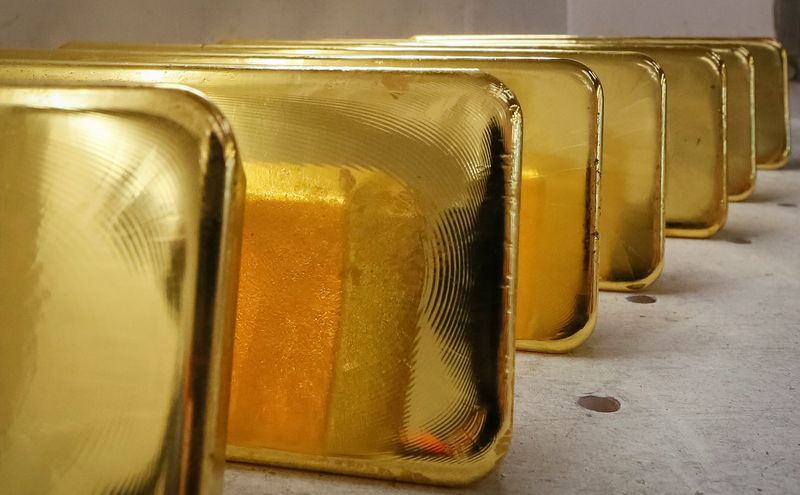Investing.com — Gold prices steadied on Tuesday after marking some gains in the prior session, as weak U.S. service sector data weighed on the dollar and fed into bets that the world’s largest economy was cooling.
The yellow metal recovered from over two-month lows after data showed on Monday that the barely grew in May, winding down months of strong growth as the labor market ran out of steam.
The data spurred some losses in the , pulling it away from near 11-week highs hit recently. This benefited most metal markets, particularly safe haven assets such as gold.
was flat at $1,961.16 an ounce, while rose 0.2% to $1,977.45 an ounce by 20:44 ET (00:44 GMT). Both instruments rose over 0.6% on Monday after the U.S. data.
But despite recent gains, gold was trading largely rangebound as markets hunkered down before a next week. Traders are split over whether the central bank will hike or hold interest rates, following mixed signals on the move over the past week.
While inflation and labor market data surprised to the upside, several Fed officials called on the central bank to pause its rate hike cycle and take stock of monetary policy tightening over the past year.
But regardless of the Fed’s move next week, U.S. interest rates are widely expected to remain higher for longer this year, limiting any major gains in metal prices. High interest rates push up the opportunity cost of holding non-yielding assets such as gold.
The yellow metal may yet see increased bids later this year, especially as U.S. economic conditions worsen.
Weakness in the dollar helped copper prices recover further from a six-month low hit last week, although sentiment towards the red metal remained on edge ahead of more economic cues from major importer China, due this week.
fell 0.1% to $3.7592 a pound on Tuesday, after rising 1.2% in the prior session.
Focus this week is on Chinese and , the latter of which is expected to provide more cues on commodity demand in the country as a post-COVID economic rebound fizzles out.
A series of weak economic readings from China had battered copper prices through May. Soft manufacturing prints from the and had also weighed on demand for the red metal, which stands to lose out in the event of a major recession this year.
Read the full article here
